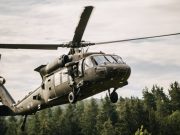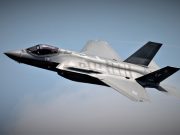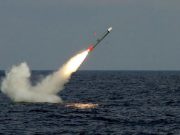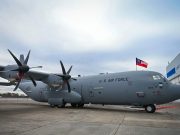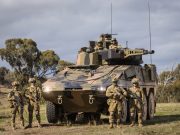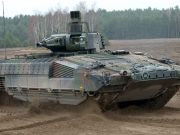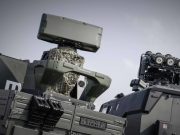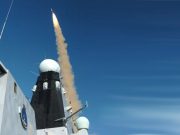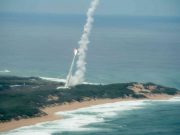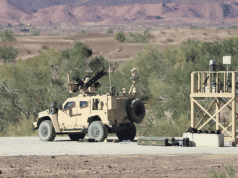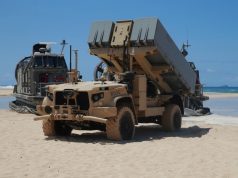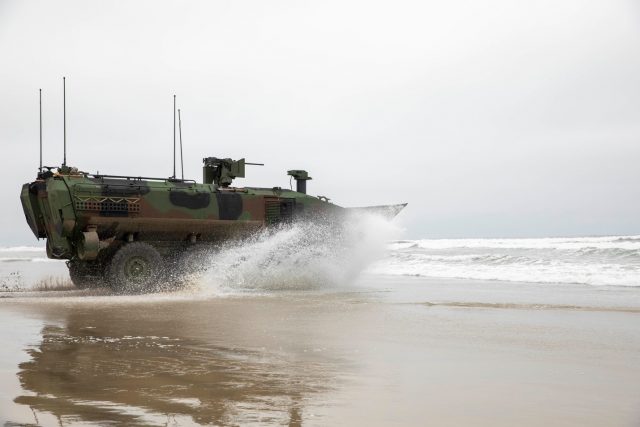
The US Marine Corps is limiting operations with the new Amphibious Combat Vehicle after one overturned in a training maneuver off Camp Pendleton on October 13.
According to the service, the eight-wheeled vehicle overturned in the surf zone after experiencing a mechanical malfunction. The three crew members from the Marines Assault Amphibian School onboard the vehicle at the time of the accident were not injured.
The service did not specify how long the suspension will last, saying only it would take time to collect and analyze data collected from testing. It is worth noting that only surf zone operations have been suspended, as the ACV is still cleared to operate on land, in protected waters and in the open ocean.
“We’re taking a deliberate and methodical approach to fielding this platform,” Lt. Gen. David Furness, the deputy commandant for plans, policies and preparations, said. “This adjustment to current guidance ensures our Marines have the ability to safely train and maintain proficiency with the platform while we work to conduct additional testing.”
The October 13 incident is the second time in four months ACVs have overturned. A similar incident from July, when two ACVs experienced similar issues, prompted the Marine Corps to order a halt on operations, which were lifted in late September.
What is more, the service put all waterborne ACV operations on hold in September last year over concerns with a faulty towing mechanism. The vehicle was allowed back into water in December 2021.
The US Marine Corps received its first ACVs from BAE Systems in 2020 as a replacement for the amphibious assault vehicle (AAV). The program is in full rate production and the company is under contract for either the design or delivery of four variants of the ACV family of vehicles: ACV personnel (ACV-P), ACV command variant (ACV-C), 30mm cannon (ACV-30), and the recovery (ACV-R) variants.
Compared to the AAV, the ACV will provide superior landward maneuverability and mobility, while providing protection similar to the mine-resistant ambush protected vehicle. The ACV has a six-cylinder, 690 horsepower engine, making it capable of land speeds exceeding 55 mph. It’s also designed to provide Marines the flexibility to address additional mission roles and future technologies through its modular design.



